Shifting Gears: From Media to Mediation
Shifting Gears: From Media to Mediation
Insight MinLaw goes behind the scenes to uncover stories about how the work we do impacts you.
Career shifts sometimes call for leaps into the unknown.
This has not stopped Mr Teh Joo Lin from exploring new paths in his work life, including a mid-career switch that has seen him move from the media to the mediation scene.
He says: “Change brings about uncertainty, but the pay-off is experience and exposure. I feel like I have lived different lives and am the richer for it.”
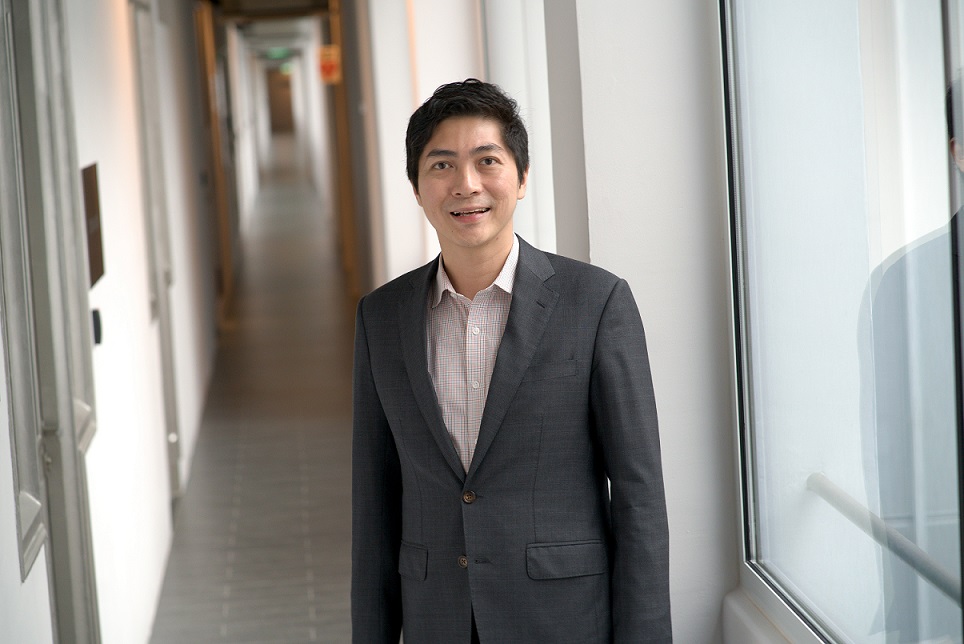
Over the past 15 years, Mr Teh has worn several hats. He was a journalist at The Straits Times before deciding to switch to law and return to school for a second degree. The 38-year-old joined the legal service after completing the full-time course at the National University of Singapore. Following stints at the Attorney-General’s Chambers and the Supreme Court, he transitioned to be a policy adviser in the Ministry of Law.
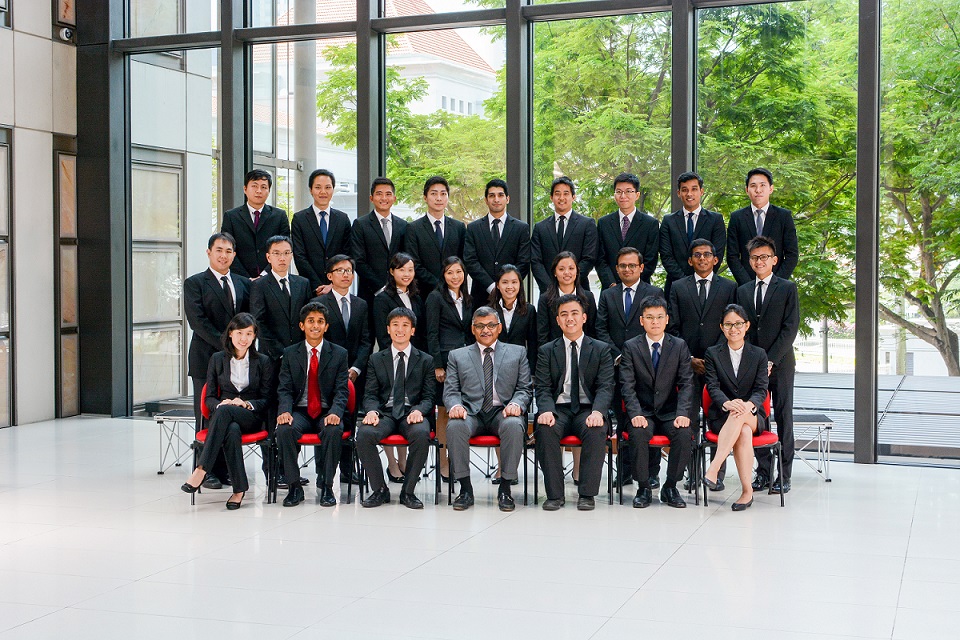
Mr Teh Joo Lin (top row, fourth from left) was working as a Justices’ Law Clerk at the Supreme Court of Singapore between 2015 – 2016.
At the start of this year, his legal journey took him to the Singapore International Mediation Centre (SIMC) in the role of deputy chief executive officer. SIMC specialises in the resolution of cross-border disputes through mediation, which is an increasingly important method of settling conflicts.
He points to a common thread in these roles – service to the wider community.
Mr Teh joined The Straits Times in 2006 after completing his degree in communication studies at Nanyang Technological University. He set his mind on joining the broadsheet after what he called “fulfilling” internship stints at the national daily.
He says: “The public service value of journalism lies in provide accurate, balanced and contextualised information that people need and want to know, to go about their decisions in daily life.
“Even a tiny weather report could help someone decide whether to bring an umbrella out. An interview on a fatal accident can remind someone to be more careful on the roads.”
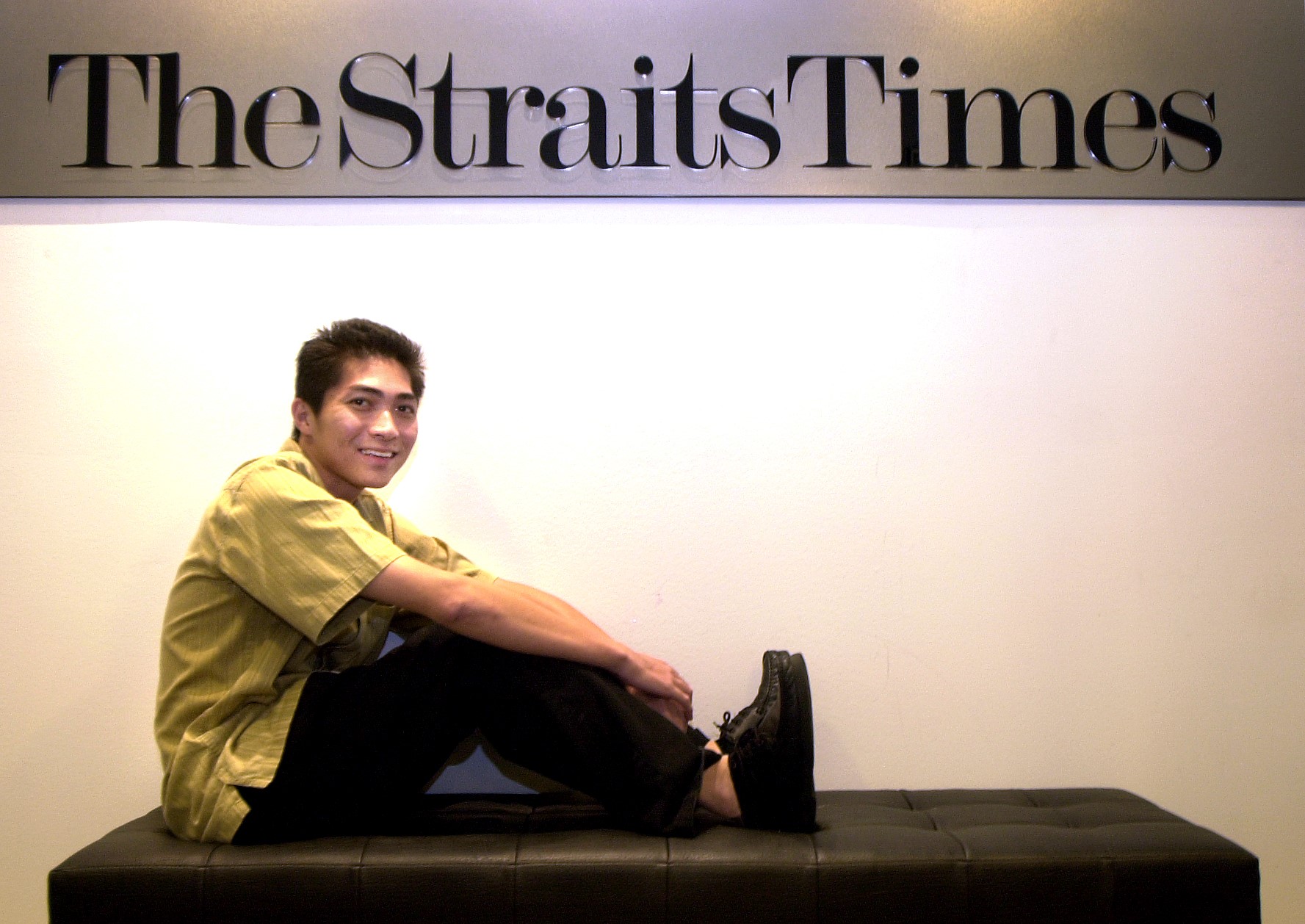
The former award-winning correspondent credits his reporting stint – he was a journalist for more than five years and covered major news events such as the manhunt for Mas Selamat Kastari and the 2011 General Elections – with instilling a strong understanding of what makes Singapore society tick.
Asked about the most satisfying aspect of his articles, Mr Teh points to the opportunity to report about “hidden communities” to help others understand their lives. This led to articles on migrant workers, the vice trade, gang violence, and even life behind bars.

But he shut his notebook in 2011. It was time to chase his other passion – law.
He says: “As I went beyond reporting on singular events to exploring the underlying issues, I realised that I kept returning to the same two questions: First, what does the law say on this? Second, what should the law be?”
He joined the Singapore Legal Service after graduation from the NUS Faculty of Law and started with a brief posting to the Attorney-General’s Chambers. He then served in the Supreme Court as a Justices’ Law Clerk, where he assisted the judges in the Court of Appeal and High Court.
He credits the legal service with offering a diverse range of roles for aspiring lawyers, many of which are “not available in the private sector”.
He reflects on his experiences in the judiciary as being “humbling and inspiring”.
He says: “I benefited from a close-up view of the courts in action. Fairness and justice are neither lofty nor elusive concepts found only in the books.
“The courts strive in every case to determine where rights and responsibilities lie, and to ensure that fairness and justice are served. In some cases, this has made the difference between life and death.”
However, Mr Teh was struck by the wasteful nature of some disputes before the courts, especially those between family members and friends who were riven by deep personal conflict.
He says: “In some cases, parties are fighting at every step of the way just to prove a point. Relationships had broken down to the point where family members could not even look each other in the eye.
“These matters may not be entirely suitable to be aired in the courts. I wondered if something else could be done.”
He found the answer when he joined the Ministry of Law in January 2016.
As a lawyer in the Policy Advisory Division, he was part of a team that worked on Singapore’s mediation legal frameworks. The projects included the Singapore Convention on Mediation, a ground-breaking treaty that allows businesses to enforce cross-border settlement agreements efficiently. The UN treaty, which has 53 signatories, opened for signature last August and will come into force this September.
He says: “To me, the magic of mediation is how it can be used to resolve conflicts quickly and inexpensively, and still preserve the relationship. This is so whether one is talking about neighbourhood and family disputes, or commercial and international disputes. The result is to build and not destroy value.
“With the Convention entering into force, more will appreciate the benefits of mediation. Also, the COVID-19 pandemic has disrupted many lives and businesses. During this period, it is even more critical to find ways to resolve disputes amicably and not acrimoniously. This puts everyone in a stronger position to recover.”
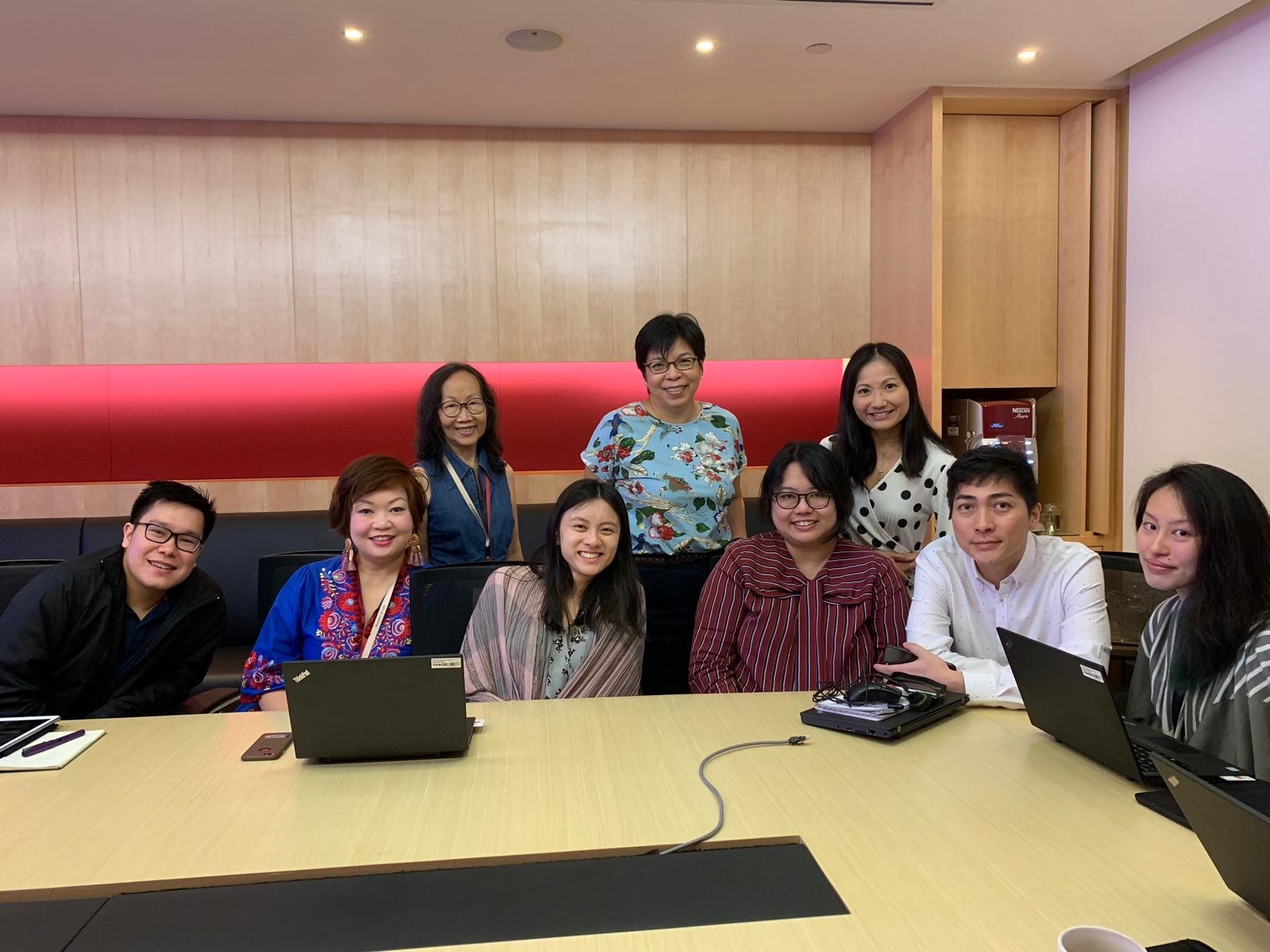
Mr Teh with colleagues from the Ministry of Law.
His three-year stint at the Ministry of Law has given him a deeper perspective of the public service’s role.
He says: “Take for example, the Singapore Convention – the first UN treaty to bear Singapore’s name. This would not have borne fruit but for the efforts of many public servants who laboured for years behind the scenes, in ways big and small, known and unknown, to make things happen.”
He adds that he has learnt at every step of the way, as his superiors gave him the opportunity to work in diverse projects and with colleagues across different divisions.
In January, Mr Teh took on a secondment opportunity to the SIMC, which has allowed him to “operate more directly at the frontier of mediation”.
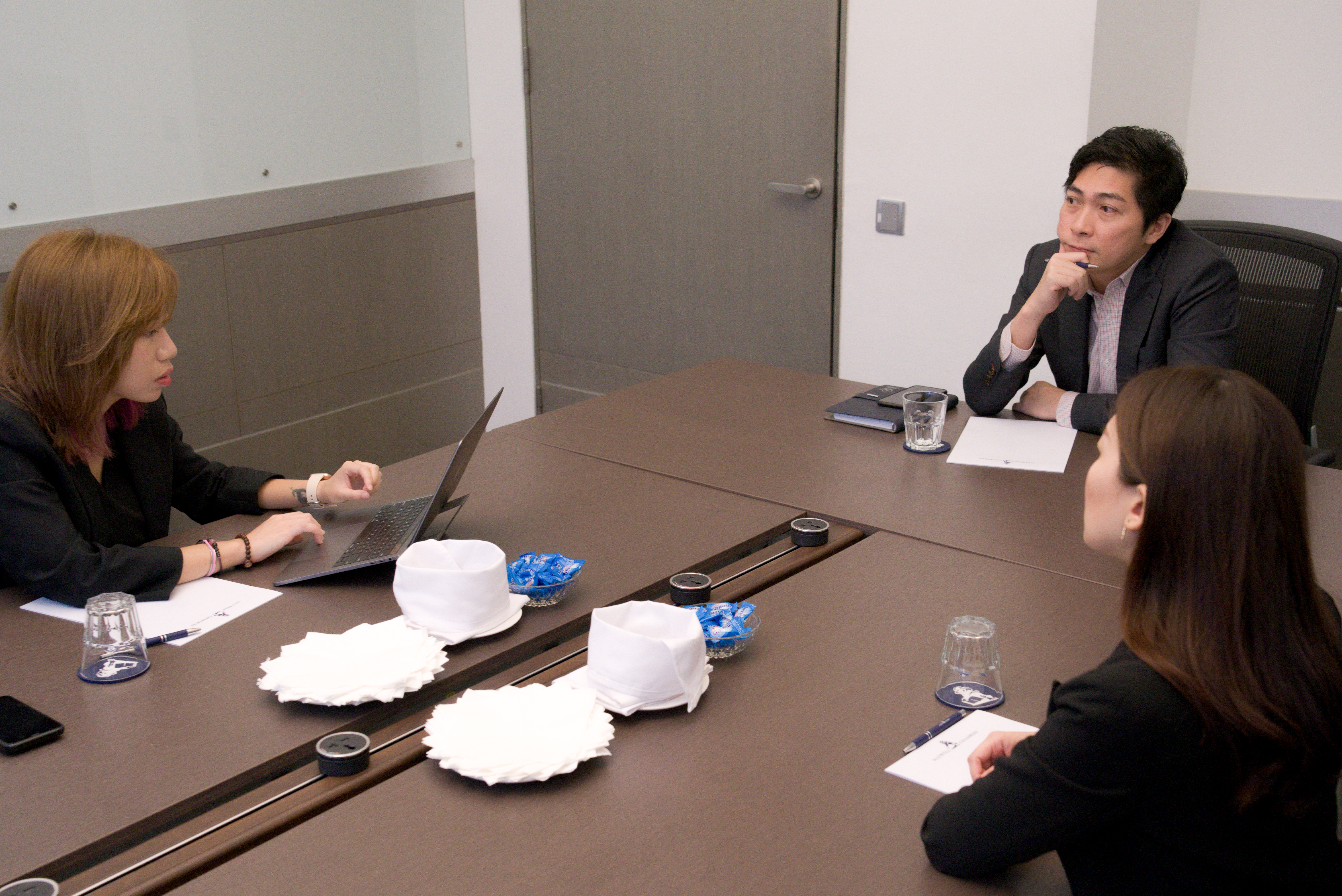
He has been busy with projects such as SIMC’s COVID-19 Protocol, which offers businesses the opportunity to resolve their disputes quickly, inexpensively and effectively during the pandemic.
He says: “Some people ask me if promoting commercial mediation is meaningful as it is about businesses, and not individuals. However, businesses play such a powerful role in society that if they are believers in the peaceful management of conflicts, there will be knock-on effects on other aspects of human life.”
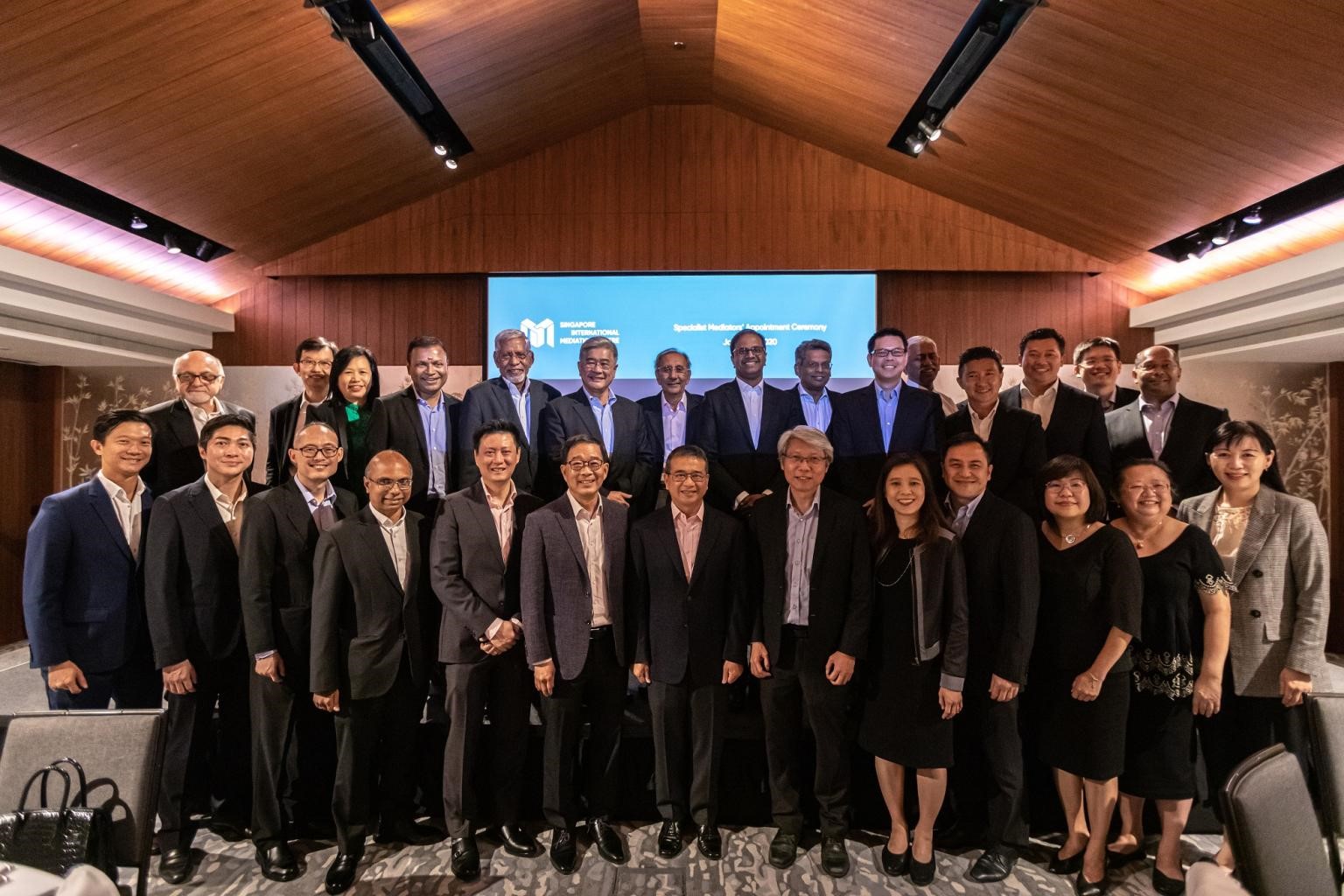
Mr Teh (bottom row, second from left)
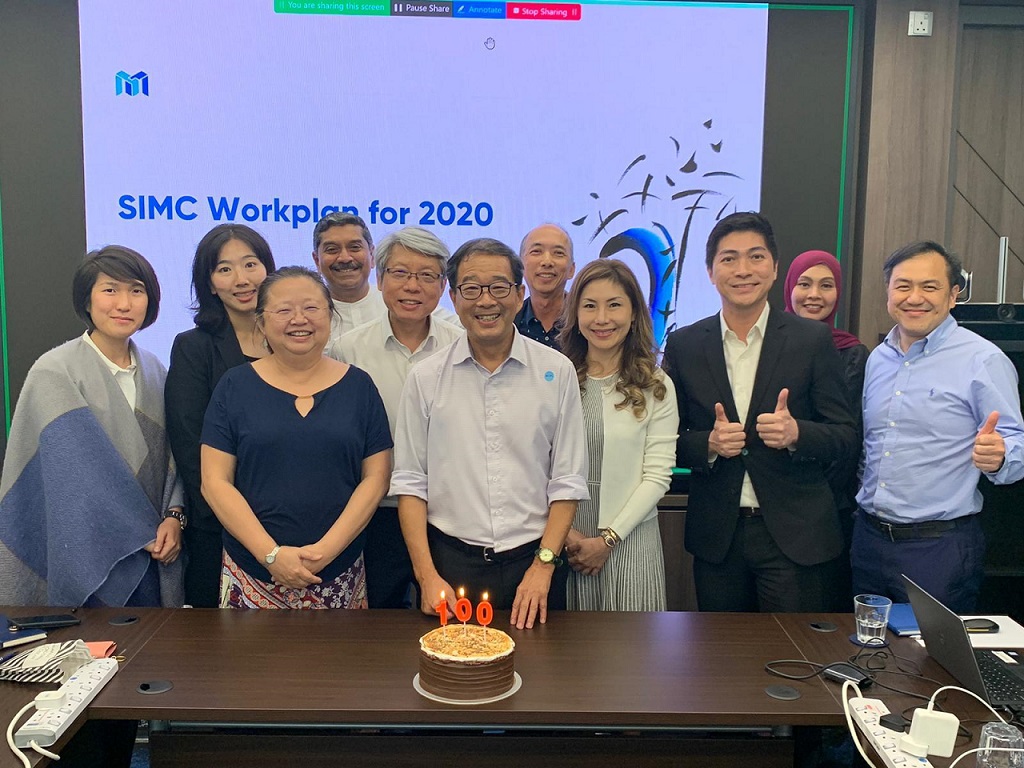
Milestone celebration for Singapore International Mediation Centre (SIMC) crossing its 100th case. Photo taken on 3 Mar 2020.
The current role also enables him to draw on his knowledge and experience in law and communications, giving him a head start of sorts.
He reflects: “For example, communication skills are important in mediation. This is an area that I studied and practised as a reporter.
“However, it cannot be taken for granted that one’s ability in one context can simply be translated to another – there is a certain level of recalibration to be made, and the support of colleagues and bosses are all important.”
Asked if his mid-career switch had impeded his professional development, Mr Teh notes: “Perhaps, if this is conceived in a narrow sense. But a career is not just about linear progression up the ranks, but the experiences gained and the ability to contribute in different areas.
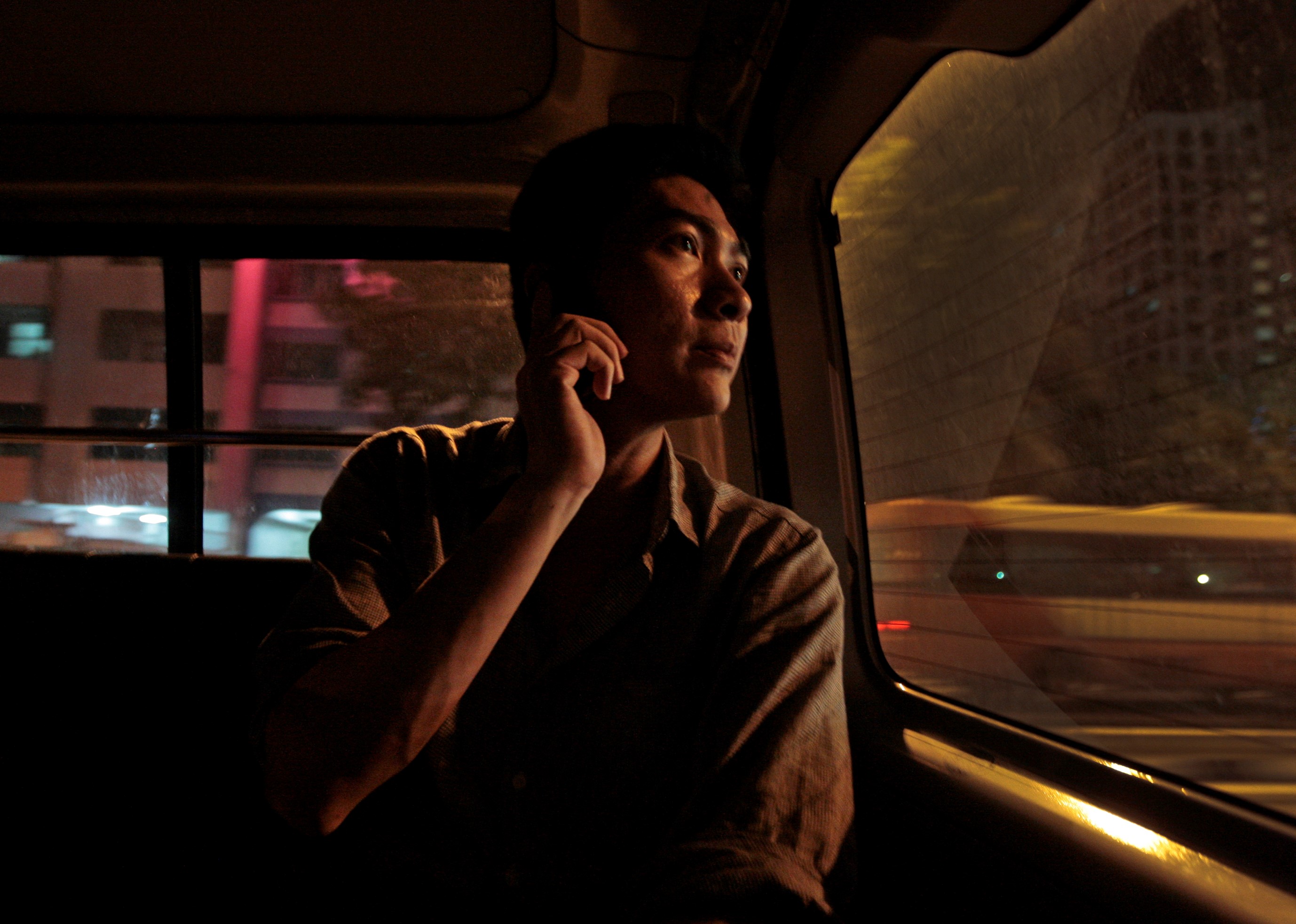
“In hindsight, whatever I did was a necessary step for what I am doing today. At the end of the day, I just ask myself if I am learning, and if I’m adding to something that is larger than myself.
“On both counts, I believe the answer is ‘yes’.”
Last updated on 23 July 2020
Other stories you may like:
Global Experts Connect at Singapore Convention Week
Advancing Mediation: From Practice to Policy

